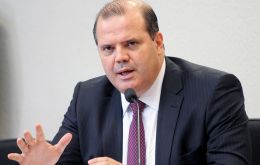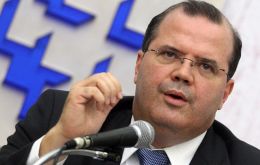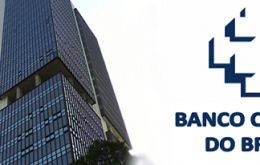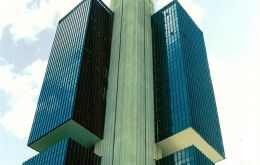MercoPress. South Atlantic News Agency
Tag: Brazil's Central Bank Monetary Policy Committee (Copom)
-
Thursday, December 4th 2014 - 05:03 UTC
Brazil raised the basic interest rate 50 basic points to 11.75%

Brazil's central bank on Wednesday raised its key interest rate by 50 basis points to 11.75%. The rise came on the back of a one quarter point rise just over a month ago which was the first since April and in the wake of populist Dilma Rousseff's re-election as president, who last week appointed a new finance team to tackle rising inflation.
-
Thursday, October 30th 2014 - 10:39 UTC
In a divided vote, Brazil's central bank raised the Selic rate 25 points to 11.25%

In a surprise move and in divided vote (5 to 3), Brazil's central bank monetary board, Copom, decided to raise its benchmark Selic rate by 25 basis points to 11.25%. A majority of economists and analysts anticipated that the bank would opt to keep rates unchanged.
-
Friday, July 18th 2014 - 07:45 UTC
Brazil leaves basic interest rate unchanged at 11%; no surprises expected ahead of October election

Brazil held interest rates unchanged for a second straight time this week but did not commit to keeping them stable for long as inflation remains high in Latin America's top economy. The Brazilian economy performance is anemic and next October president Dilma Rousseff is bidding for re-election.
-
Friday, July 11th 2014 - 01:37 UTC
Uruguay central bank admits inflation remains the main concern and pledges monetary contraction

Uruguay's Central bank confirmed that inflation remains the leading challenge and ratified the current monetary contractive policy with the M1 money supply index converging to 8% from its current 10.4%, in a 'not too distant horizon'.
-
Thursday, May 29th 2014 - 05:51 UTC
Brazil's central bank opted to leave rate unchanged at 11%, “at this moment”

Brazil left its benchmark interest rate unchanged on Wednesday. In a unanimous decision, the central bank's monetary policy committee, Copom, kept the Selic rate at 11%, breaking a streak of nine consecutive hikes as expected by a majority of analysts and market traders.
-
Thursday, April 3rd 2014 - 07:21 UTC
Brazil central bank raises benchmark Selic rate to 11%

Brazil's central bank raised its benchmark Selic rate to 11% from 10.75% on Wednesday, prolonging its tightening cycle after a surge in food prices that has stoked already high inflation in an election year. The bank's decision was unanimous and left the door open for possible further rate hikes.
